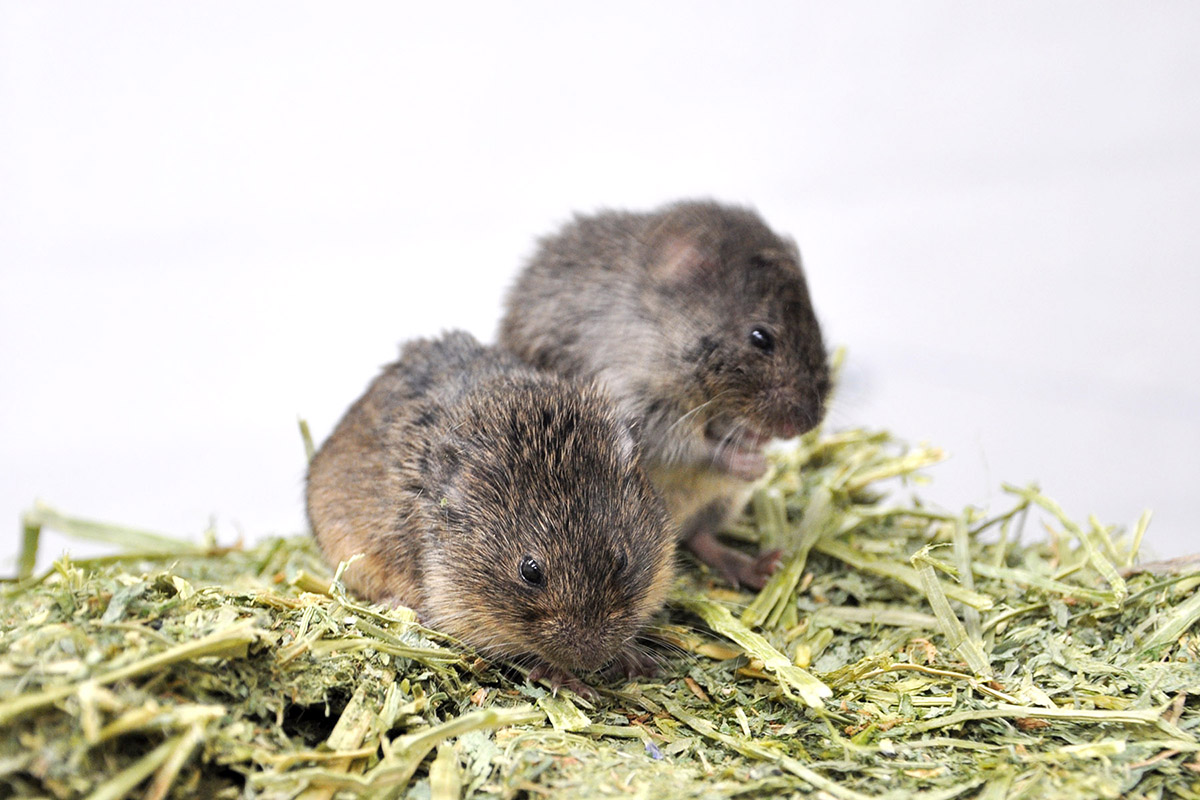Philandering prairie voles cued by genes, brains, environment
By Susan Kelley

Scientists often observe a few animals behaving differently from their peers in social contexts, but they can rarely pinpoint why the outliers act the way they do. A new study sheds light on that question, through the case of the philandering prairie vole.
Male prairie voles with poor spatial memory are more likely to cheat on their mates, and both environmental factors and genetic predispositions explain why, researchers have found. Faithful and unfaithful males have different genetics that translate into different patterns of space use, and these behavioral differences lead to each male type breeding successfully under different population densities. The research is published in the journal Science.
“What we’re really getting at in this paper is, individual variation in genes and gene expression is coding for individual differences in behavior,” said coauthor Alexander Ophir, assistant professor of psychology. “This is an amazing example of how you can follow the big-scale ecological behavior down to the molecular underpinnings and then back up again.
“Evolutionary pressures are influencing the maintenance of these different genetic factors that ultimately control the expression of this gene and then translate into the behaviors that you see.”
Scientists have long known that prairie voles, a common type of Midwestern rodent, are typically one of the few monogamous mammals in the world, living with long-term partners in underground nests and raising litters of pups together. Scientists have also known that some males tend to roam into neighboring territory and mate with unguarded females, and that these cheating males have genes that are expressed differently in the part of the brain that relates to spatial memory.
The study shows that these genes can be influenced by such environmental factors as population density, and that the cheating voles have more reproductive success when the population is high, while faithful prairie voles do better reproductively when the population is low.
“If the population density is high, the chances of getting cheated on goes up, because there are a lot of other males around. So it’s that high population density that favors being an unfaithful ‘married’ prairie vole,” said Ophir. “But when the population crashes, then those chance encounters should be more infrequent, and guarding your mate should be more effective. It’s a trade-off. If you are cheating, you are more likely to be cheated on. So you stay and protect or take your chances and cheat.”
Ophir and his colleagues speculate that spatial memory comes into play because being monogamous is a spatial task.
“You need to know who your neighbors are and where they are. Some are competitors, some are potential mates,” he said. A male with good spatial memory will stay at home and ensure his mate only has his children.
But if a wandering male can’t remember being chased off by a competitor, he may return to find an opportunity to mate, Ophir said. “Both strategies are beneficial, depending on the population density.
Ophir is a co-author with Mariam Okhovat, Alejandro Berrio Gerard Wallace and Steven Phelps, all of the University of Texas.
Media Contact
Get Cornell news delivered right to your inbox.
Subscribe